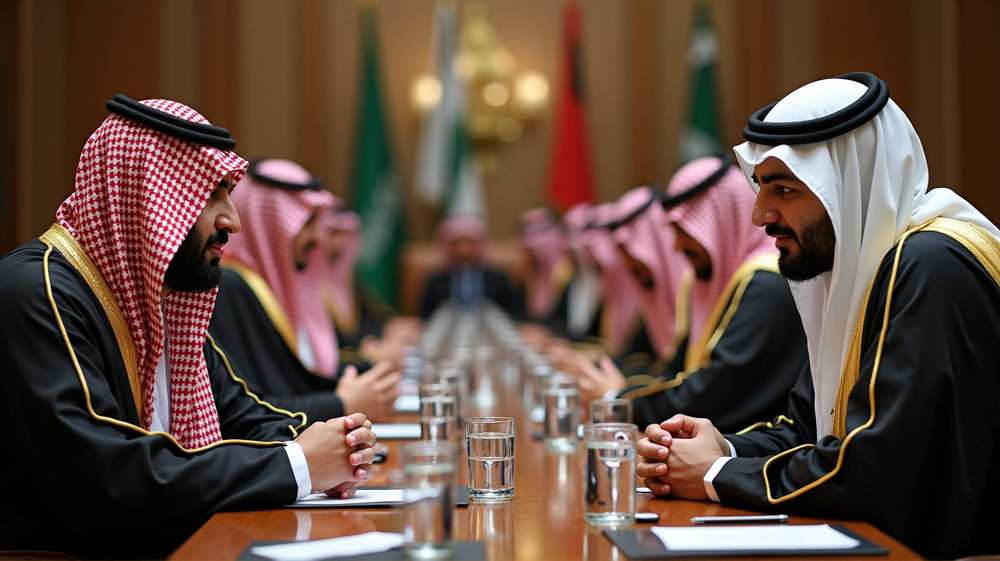In recent years, the world has watched as Saudi Arabia and Israel engaged in a complex diplomatic ballet, moving towards what seemed like an inevitable historical handshake. However, the mirage of Saudi-Israeli normalization remains elusive, ensnared by deeper geopolitical intricacies that outlast symbolic gestures or diplomatic smiles.
Riyadh’s Unyielding Stand on Statehood
At the heart of this geopolitical gridlock is Saudi Arabia’s unfulfilled condition—Palestinian statehood. Riyadh’s terms aren’t just political rhetoric; according to Saudi Foreign Minister Prince Faisal bin Farhan, they require a “credible, irreversible path to a Palestinian state.” This principle is the crux of their foreign policy and remains non-negotiable for Saudi leaders.
Despite international diplomatic overtures, Saudi Arabia co-sponsored a Paris-led UN initiative in July aimed at rejuvenating two-state negotiations. The Kingdom’s strategy became more robust after Israel’s E1 settlement plan received the green light, an act denounced globally and seen as diminishing Palestinian territorial integrity.
Jerusalem’s Firm Red Lines
Israel, under Prime Minister Benjamin Netanyahu’s leadership, is equally adamant about maintaining security control over territories it considers crucial. Yet, this stance is irreconcilable with any semblance of Palestinian statehood, given the constraints imposed by its far-right coalition partners. While Israel may savor tactical wins through quiet alliances or symbolic diplomacy, without substantive steps towards Riyadh’s demands, real progress seems distant.
Washington’s Waning Influence
The United States, traditionally a mediator, finds its leverage dwindling. President Biden’s approach sought to bundle normalization with defense and nuclear agreements—a triad dubbed a “grand bargain.” The return of the Trump administration in 2025, however, shifted focus away from normalizing Saudi-Israel relations, inadvertently affording Riyadh the latitude to secure strategic advantages without diplomatic concessions. This shift might be subtly permitting Saudi Crown Prince Mohammed bin Salman to withhold normalization without risking American strategic deliverables.
Gaza: A Geopolitical Litmus Test
Moreover, Saudi Arabia’s foreign policy increasingly views Gaza beyond its immediate humanitarian crisis. The Kingdom’s leadership ties the normalization process to Gaza’s developmental, governmental, and political outcomes. The Gaza quandary, therefore, is seen as a critical determinant for any conceivable Saudi-Israeli accord.
Prospects for Progress
Future advancement in Arab-Israeli relations hinges on critical developments: shifts in Israel’s West Bank settlement policies or clarifications on US-Saudi nuclear arrangements, reflecting current geopolitical dynamics. Meanwhile, Saudi gestures through another Paris-style summit or meaningful dialogues with Jerusalem may bridge the impasse, though the geopolitical labyrinth remains intact.
Conclusion: The Gap Yet Unbridged
The promise of Saudi-Israeli normalization isn’t merely a question of ‘if.’ It is a matter of ‘when’—conditional on the exacting cost associated with true peace. Riyadh’s insistence on substance over symbolism collides with Jerusalem’s contrary offers, while Washington’s political balancing act stretches its diplomatic fibers. Until these divides are reconciled, the anticipated diplomatic embrace risks remaining an optical illusion.
As stated in Middle East Monitor, this dispute symbolizes broader regional dynamics where diplomacy is just one piece of a much larger and intricate puzzle—one that requires more than smiles for its resolution.












